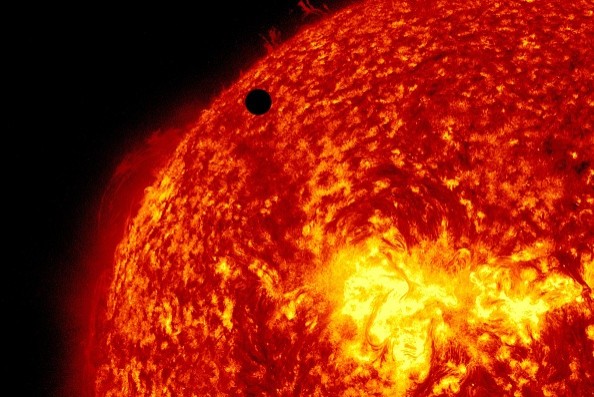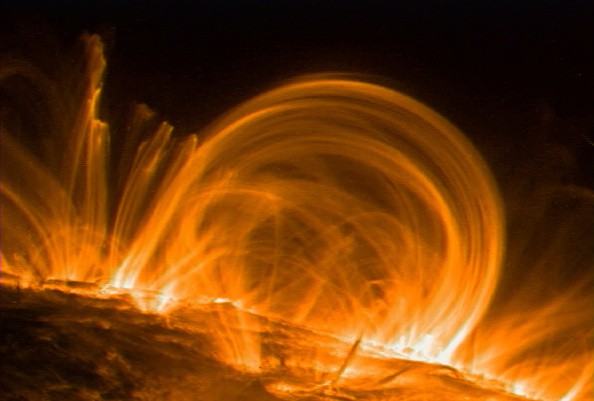A new AI is currently being developed. Its creators said that the upcoming artificial intelligence could specifically enhance NASA's captured images of the Sun.

Once the new technology's efficiency is proven, the AI's engineers explained that space experts could use it to improve their solar studies.
Machine learning was confirmed by a new study titled "Multichannel autocalibration for the Atmospheric Imaging Assembly using machine learning," which was published by the journal Astronomy and Astrophysics.
"Solar activity plays a quintessential role in affecting the interplanetary medium and space weather around Earth," said the involved scientists.
"Remote-sensing instruments on board heliophysics space missions provide a pool of information about solar activity by measuring the solar magnetic field and the emission of light from the multilayered, multithermal, and dynamic solar atmosphere," they added via Astronomy and Astrophysics.
New AI Makes NASA's Sun Images More HD?
According to Phys.Org's latest report, NASA and other space agencies are having a hard time capturing very accurate images of the Sun.
Space researchers explained that most solar telescopes find it difficult to capture HD photos of the solar system's star efficiently.

Also Read : NASA InSight Mars Helicopter Discovers Marsquakes; New Details Show Planet Has Large Core and Thin Crust
They added several issues since solar telescopes are usually exposed to never-ending intense sunlight and solar particle streams. Because of this, the device's sensors and other sensitive lenses usually degrade over time.
This is where the new artificial intelligence comes in. Since they discovered the issues appearing in NASA's solar telescopes and other similar space technologies, the involved researchers decided to look into the use of machine learning or AI.
They added that their innovation would depend on identifying solar flares offered by AIA (Atmospheric Imaging Assembly), the space agency that studies multiple wavelengths of light.
"This was the big thing. Instead of just identifying it on the same wavelength, we're identifying structures across the wavelengths," said Dr. Luiz Dos Santos, a solar physicist at NASA's Goddard Space Flight Center.
Other Details Of the New Solar Telescope AI
The developers of the new AI for NASA explained that they would train the machine learning algorithm to identify solar structures.
They added that it also needs to have the ability to compare solar flares using AIA Data. To make this a possibility, researchers need to integrate images captured by sound rocket calibration flights into their artificial intelligence model.
Experts added that they would also check if their innovation could identify the correct calibration needed for more accurate Sun images.
For more news updates about artificial intelligence and other similar innovations, always keep your tabs open here at TechTimes.
Related Article : NASA: EPIC Instrument Reveals Images of Moon's Shadow During Eclipse in the Arctic
This article is owned by TechTimes
Written by: Griffin Davis
ⓒ 2026 TECHTIMES.com All rights reserved. Do not reproduce without permission.




